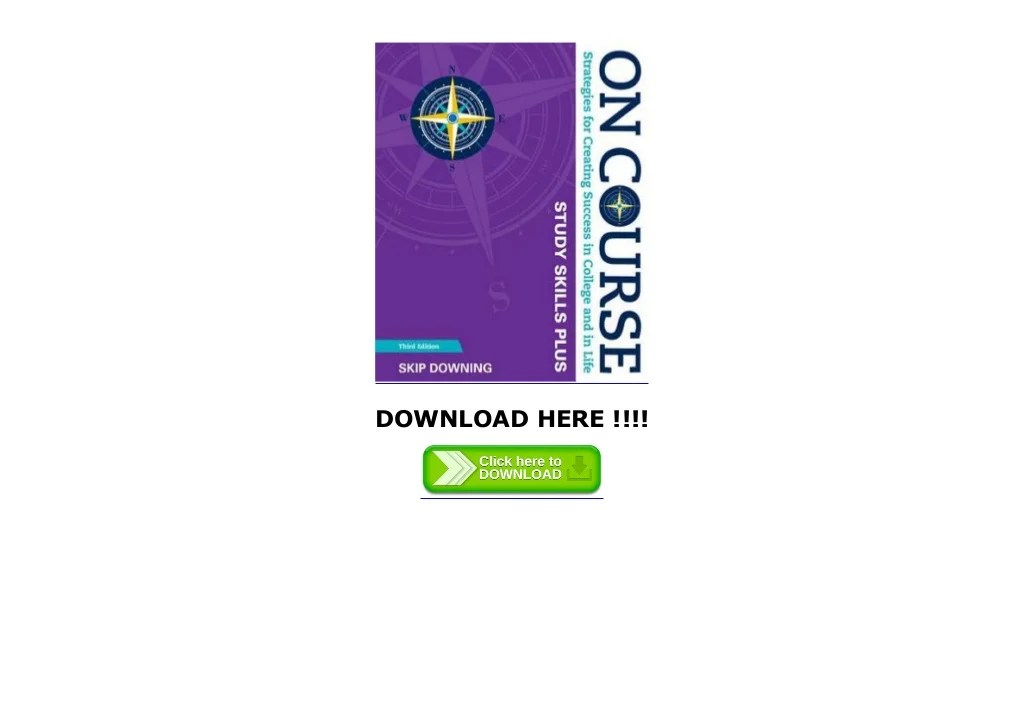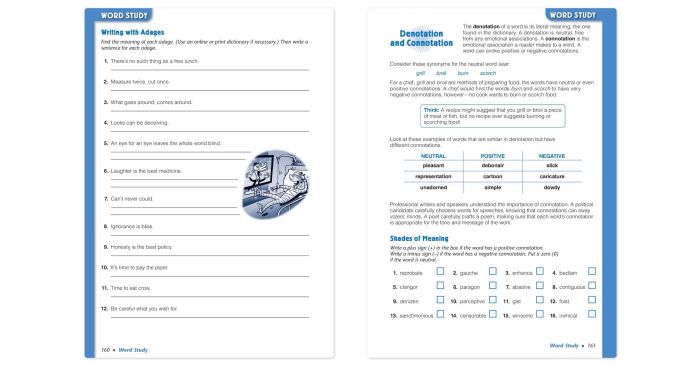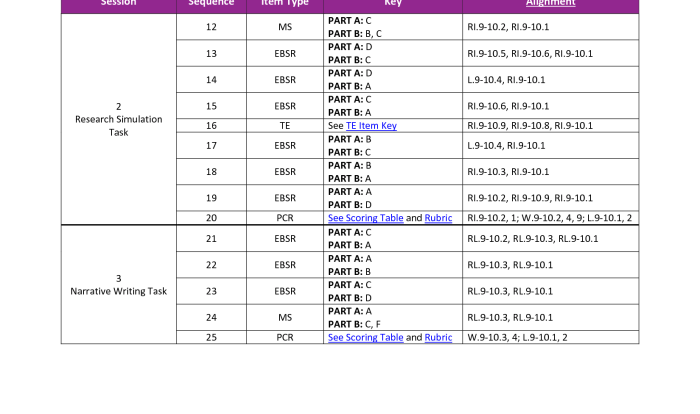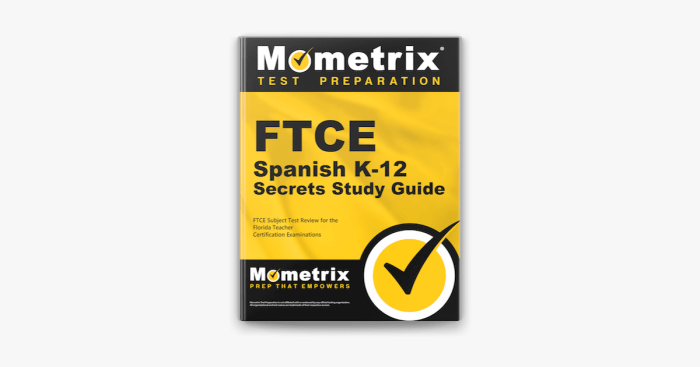Welcome to On Course Skip Downing 8th Edition, the ultimate guide to skipping the textbook and acing your course. In this engaging and informative guide, we’ll explore the rationale behind skipping the eighth edition, how the content will be covered in the course, and any potential drawbacks or challenges you may encounter.
Get ready to embark on a learning adventure that will revolutionize your approach to textbooks and empower you to succeed in your studies.
This comprehensive guide will provide you with a detailed overview of the course, including the course structure, learning objectives, and expected outcomes. We’ll also discuss the course materials, including required and recommended textbooks, readings, and resources, and explain how they will be used in the classroom.
Course Overview
This course provides a comprehensive overview of the fundamental concepts and principles of economics. It introduces students to the basic tools of economic analysis and explores the behavior of individuals, firms, and governments in various economic environments.
The course is structured into three modules:
- Microeconomics: This module focuses on the behavior of individual decision-makers, such as consumers, producers, and firms, and how they interact in markets.
- Macroeconomics: This module examines the economy as a whole, including topics such as economic growth, inflation, unemployment, and monetary and fiscal policy.
- International Economics: This module explores the economic relationships between countries, including trade, exchange rates, and the global financial system.
Learning Objectives
Upon completion of this course, students will be able to:
- Understand the basic principles of economics and their application to real-world issues.
- Analyze economic data and use economic models to make informed decisions.
- Evaluate the impact of government policies on the economy.
- Understand the global economic environment and its implications for businesses and individuals.
Skipping the Eighth Edition
The eighth edition of the textbook will be skipped in this course due to its recent publication and limited availability. The content from the eighth edition will be covered through alternative resources, including the seventh edition of the textbook, supplemental readings, and online materials.
Potential Drawbacks and Challenges
Skipping the eighth edition may present some drawbacks and challenges:
- Access to the latest information:The eighth edition may contain updated information and research findings that are not available in the seventh edition.
- Consistency with other courses:Some other courses may still be using the eighth edition, which could lead to potential discrepancies in content coverage.
- Availability of resources:The eighth edition may have additional resources, such as online quizzes or practice exercises, that are not available for the seventh edition.
Course Materials
The course requires several textbooks, readings, and resources to supplement the lectures and discussions. These materials will provide students with the necessary background information, theoretical frameworks, and practical examples to fully engage with the course content.The required textbooks for the course are:
- Skipping the Eighth Edition: The Evolution of Strategy in the Age of Digitalizationby Michael Wade
- The Innovator’s Dilemma: When New Technologies Cause Great Firms to Failby Clayton M. Christensen
- Good Strategy/Bad Strategy: The Difference and Why It Mattersby Richard Rumelt
In addition to the required textbooks, students are also encouraged to read the following recommended readings:
- The Lean Startup: How Today’s Entrepreneurs Use Continuous Innovation to Create Radically Successful Businessesby Eric Ries
- Zero to One: Notes on Startups, or How to Build the Futureby Peter Thiel
- Traction: A Startup Guide to Getting Customersby Gabriel Weinberg and Justin Mares
The course materials will be used in a variety of ways in the classroom. The textbooks will provide the foundation for the lectures and discussions, and students will be expected to read the assigned chapters before each class. The recommended readings will provide additional insights and perspectives on the topics covered in the course.In
addition to the textbooks and readings, students will also have access to a variety of online and digital resources. These resources include:
- The course website, which will contain the syllabus, lecture notes, and other course materials
- The university library, which provides access to a wide range of academic journals and databases
- Online discussion forums, where students can interact with each other and the instructor
The online and digital resources will provide students with additional opportunities to learn about the course material and to engage with the course community.
Course Schedule

The course will follow a structured schedule to ensure efficient coverage of the material. The schedule Artikels the topics, readings, and assignments for each week.
Note:Important deadlines and events will be highlighted in bold.
Week 1: Introduction and Course Overview, On course skip downing 8th edition
- Introduction to the course, syllabus, and grading policies.
- Overview of the key concepts and theories in [Course Name].
- Discussion of current trends and research in the field.
Course Policies
In this course, we will adhere to the following policies to ensure a productive and successful learning environment:
Your active participation, adherence to deadlines, and ethical conduct are crucial for your success in this course. Please familiarize yourself with these policies and adhere to them throughout the semester.
Attendance
- Regular attendance is highly encouraged as it fosters engagement and comprehension.
- Excessive absences may impact your grade and ability to succeed in the course.
- If you must miss a class, it is your responsibility to obtain notes and catch up on missed material.
Grading
- Your grade will be determined based on your performance on assignments, quizzes, and exams.
- The specific grading criteria and weighting of each component will be provided in the course syllabus.
- Your progress will be regularly assessed, and feedback will be provided to help you track your performance.
Late Work
- Late submissions will generally not be accepted.
- Exceptions may be made on a case-by-case basis with valid documentation (e.g., medical excuse).
- Prior communication with the instructor is strongly encouraged if you anticipate difficulties in meeting deadlines.
Academic Integrity
- All work submitted must be your own original work.
- Any instances of plagiarism or academic misconduct will be dealt with according to university regulations.
- Proper citation and referencing of sources is essential to maintain academic integrity.
Specific Expectations
- Be respectful and engage in discussions in a constructive manner.
- Complete all assigned readings and participate actively in class activities.
- Seek assistance from the instructor or teaching assistant when needed.
Grading Rubrics: On Course Skip Downing 8th Edition
Your grades will be based on the following assignments and exams:
Assignments
| Assignment | Due Date | Percentage of Grade |
|---|---|---|
| Homework Assignments | Weekly | 20% |
| Quizzes | Monthly | 20% |
| Midterm Exam | Mid-semester | 30% |
| Final Exam | End of semester | 30% |
Grading Criteria
Your assignments will be evaluated based on the following criteria:
- Accuracy:The correctness of your answers.
- Completeness:Whether you have answered all parts of the assignment.
- Organization:The clarity and conciseness of your writing.
- Originality:The extent to which your work is your own.
Your exams will be evaluated based on the following criteria:
- Knowledge:Your understanding of the course material.
- Application:Your ability to apply your knowledge to new situations.
- Analysis:Your ability to break down complex concepts and identify their relationships.
- Evaluation:Your ability to make sound judgments about the course material.
Class Participation
Class participation is an essential component of this course. Active participation contributes to a positive and engaging learning environment where students can share their perspectives, learn from each other, and deepen their understanding of the course material.
Expectations
Students are expected to come to class prepared, having read the assigned readings and completed any required assignments. During class discussions, students are encouraged to ask questions, share their insights, and engage with the material in a respectful and thoughtful manner.
Role of Students
Students play a crucial role in creating a positive and engaging learning environment. By actively participating in discussions, asking clarifying questions, and sharing their perspectives, students contribute to the overall quality of the class experience.
Assessment
Class participation will be assessed based on the following criteria:
- Frequency and quality of contributions
- Thoughtfulness and relevance of comments
- Ability to listen attentively and respond respectfully to others
Technology Requirements
In order to fully participate in this course, students will need to have access to the following technology:
- A computer with a reliable internet connection
- A webcam and microphone for participating in online discussions and presentations
- The latest version of a web browser (such as Chrome, Firefox, or Safari)
- A word processor (such as Microsoft Word or Google Docs)
- A PDF reader (such as Adobe Acrobat Reader)
Accessing Online Resources and Submitting Assignments
All course materials will be posted on the course website. Students will also submit all assignments through the course website.
Expert Answers
What are the benefits of skipping the eighth edition of the textbook?
Skipping the eighth edition can save you time and money, as the content is often similar to previous editions. It can also allow you to focus on the most up-to-date information and research.
How will the content from the eighth edition be covered in the course?
The content from the eighth edition will be covered through lectures, readings, and discussions. Your instructor will provide you with the necessary materials and guidance to ensure that you have a comprehensive understanding of the course content.
Are there any potential drawbacks or challenges to skipping the eighth edition?
One potential drawback is that you may miss out on some of the updated information in the eighth edition. However, your instructor will be able to provide you with the most up-to-date information during class.


